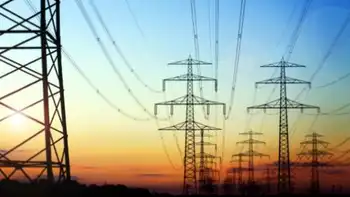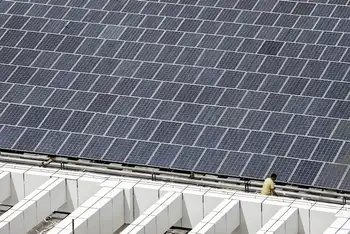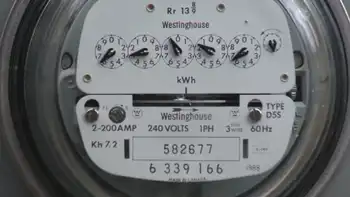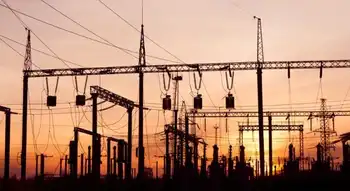Electric Ferries Power Up B.C. with CIB Help

NFPA 70b Training - Electrical Maintenance
Our customized live online or in‑person group training can be delivered to your staff at your location.

- Live Online
- 12 hours Instructor-led
- Group Training Available
BC Ferries Electrification accelerates zero-emission vessels, Canada Infrastructure Bank financing, and fast charging infrastructure to cut greenhouse gas emissions, lower operating costs, and reduce noise across British Columbia's Island-class routes.
Key Points
BC Ferries Electrification is the plan to deploy zero-emission ferries and charging, funded by CIB, to reduce emissions.
✅ $75M CIB loan funds four electric ferries and chargers
✅ Cuts 9,000 tonnes CO2e annually on short Island-class routes
✅ Quieter service, lower operating costs, and redeployed hybrids
British Columbia is taking a significant step towards a cleaner transportation future with the electrification of its ferry fleet. BC Ferries, the province's ferry operator, has secured a $75 million loan from the Canada Infrastructure Bank (CIB) to fund the purchase of four zero-emission ferries and the necessary charging infrastructure to support them.
This marks a turning point for BC Ferries, which currently operates a fleet reliant on diesel fuel. The new Island-class electric ferries will be deployed on shorter routes, replacing existing hybrid ships on those routes. These hybrid ferries will then be redeployed on routes that haven't yet been converted to electric, maximizing their lifespan and efficiency.
Environmental Benefits
The transition to electric ferries is expected to deliver significant environmental benefits. The new vessels are projected to eliminate an estimated 9,000 tonnes of greenhouse gas emissions annually, and electric ships on the B.C. coast already demonstrate similar gains, contributing to British Columbia's ambitious climate goals. Additionally, the quieter operation of electric ferries will create a more pleasant experience for passengers and reduce noise pollution for nearby communities.
Economic Considerations
The CIB loan plays a crucial role in making this project financially viable. The low-interest rate offered by the CIB will help to keep ferry fares more affordable for passengers. Additionally, the long-term operational costs of electric ferries are expected to be lower than those of diesel-powered vessels, providing economic benefits in the long run.
Challenges and Opportunities
While the electrification of BC Ferries is a positive development, there are some challenges to consider. The upfront costs of electric ferries and charging infrastructure are typically higher than those of traditional options, though projects such as the Kootenay Lake ferry show growing readiness. However, advancements in battery technology are constantly lowering costs, making electric ferries a more cost-effective choice over time.
Moreover, the transition presents opportunities for job creation in the clean energy sector, with complementary initiatives like the hydrogen project broadening demand. The development, construction, and maintenance of electric ferries and charging infrastructure will require skilled workers, potentially creating a new avenue for economic growth in British Columbia.
A Pioneering Example
BC Ferries' electrification initiative sets a strong precedent for other ferry operators worldwide, including Washington State Ferries pursuing hybrid-electric upgrades. This project demonstrates the feasibility and economic viability of transitioning to cleaner marine transportation solutions. As battery technology and charging infrastructure continue to develop, we can expect to see more widespread adoption of electric ferries across the globe.
The collaboration between BC Ferries and the CIB paves the way for a greener future for BC's transportation sector, where efforts like Harbour Air's electric aircraft complement marine electrification. With cleaner air, quieter operation, and a positive impact on climate change, this project is a win for the environment, the economy, and British Columbia as a whole.











